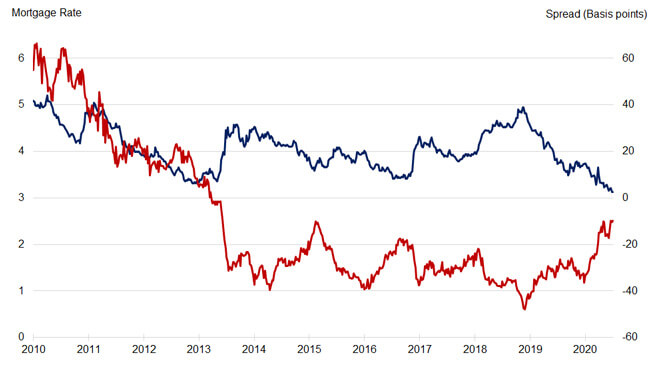Jumbo Loan: Financing Solutions for Homes Above Conforming Limits
Jumbo Loan: Financing Solutions for Homes Above Conforming Limits
Blog Article
Navigating the Jumbo Car Loan Landscape: Crucial Insights for First-Time Homebuyers
Browsing the complexities of big lendings offers a special set of obstacles for newbie property buyers, particularly in an advancing genuine estate market. Understanding the necessary qualification demands and potential advantages, alongside the downsides, is important for making informed choices. Additionally, establishing a strong monetary approach can substantially boost your potential customers.
Recognizing Jumbo Fundings

Since jumbo car loans are not backed by government-sponsored entities, they bring different underwriting standards and require even more thorough economic paperwork. This distinction can result in higher rate of interest contrasted to traditional fundings, provided the enhanced risk to lending institutions. Jumbo lendings additionally use distinct advantages, such as the capacity to fund higher-value residential or commercial properties and possibly a lot more flexible terms.
New buyers must also be mindful that protecting a jumbo financing typically necessitates a bigger down repayment, typically varying from 10% to 20%. Furthermore, borrowers are usually anticipated to show strong credit reliability and a steady earnings to certify. Recognizing these nuances can equip novice property buyers to make educated choices when discovering jumbo car loan options in their pursuit of homeownership.
Eligibility Needs
Securing a jumbo finance requires meeting certain qualification requirements that differ substantially from those of conventional finances. Unlike conventional car loans, which are commonly backed by government-sponsored entities, big lendings are not insured or ensured, causing more stringent standards.
Furthermore, debtors need to demonstrate a robust financial profile, which consists of a reduced debt-to-income (DTI) proportion, normally no higher than 43%. This guarantees that borrowers can manage their month-to-month settlements together with other financial obligations.
In addition, most lenders require substantial documents, consisting of evidence of earnings, possession statements, and income tax return for the previous 2 years. A substantial deposit is also important; while conventional car loans may permit deposits as reduced as 3%, jumbo car loans typically demand at least 20%, relying on the loan provider and the car loan quantity.

Benefits of Jumbo Finances
For several first-time property buyers, big lendings supply unique benefits that can facilitate the journey toward homeownership. Among the main advantages is the capability to fund residential properties that exceed the conforming funding limitations established by government-sponsored entities. This adaptability makes it possible for customers to access a bigger variety of high-value residential properties in affordable realty markets.
Furthermore, big finances usually feature eye-catching rates of interest that can be lower than those of conventional car loans, particularly for customers with strong credit score accounts. This can lead to substantial savings over the life of the loan, making homeownership extra economical. Additionally, jumbo loans commonly enable higher lending quantities without the demand for personal mortgage insurance (PMI), which can better minimize total expenses and monthly settlements.

Potential Disadvantages
Lots of prospective property buyers might locate that big lendings come with considerable disadvantages that necessitate mindful factor to consider. One of the primary problems is the strict certification requirements. Unlike adhering finances, big finances commonly call for greater credit report, frequently exceeding 700, and significant revenue documents, making them less available for some customers.
Additionally, big financings usually include higher rates of interest contrasted to conventional car loans, which can cause enhanced regular monthly payments and overall loaning expenses. This costs may be specifically troublesome for first-time buyers who are currently browsing the financial intricacies of buying a home.
Another remarkable downside is the larger deposit requirement. Several loan providers expect a have a peek here minimum down settlement of 20% or more, which can posture a difficulty for customers with restricted financial savings. In addition, the lack of federal government backing for big finances results in much less beneficial conditions, enhancing the threat for lenders and, subsequently, the loaning prices for home owners.
Last but not least, market variations can dramatically impact the resale worth of premium properties financed with big loans, including an element of monetary changability that newbie homebuyers may find overwhelming.
Tips for First-Time Homebuyers
Navigating the complexities of the homebuying process can be overwhelming for newbie purchasers, particularly when thinking about big fundings (jumbo loan). To simplify this journey, adhering to some essential methods can make a significant distinction
First, educate yourself on big finances and their certain demands. Understand the various borrowing requirements, consisting of credit report, debt-to-income proportions, and deposit assumptions. Normally, a minimum credit rating of 700 and a down payment of at the very least 20% are important for approval.
2nd, involve with an experienced home loan expert. They can offer insights this link customized to your economic situation and assist you navigate the complexities of the jumbo loan landscape.
Third, consider pre-approval to enhance your purchasing position. A pre-approval letter signals to vendors that you are a severe purchaser, which can be advantageous in open markets.
Finally, do not forget the relevance of budgeting. Factor in all costs related to homeownership, consisting of real estate tax, maintenance, and homeowners' insurance coverage. By adhering to these pointers, first-time customers can come close to the big financing procedure with better self-confidence and quality, boosting their opportunities of effective homeownership.
Verdict
In verdict, browsing the big funding landscape requires a thorough understanding of qualification requirements, benefits, and potential drawbacks. First-time buyers can boost their chances of success by maintaining a strong credit rating score, handling their debt-to-income proportion, and preparing for larger deposits. Involving with knowledgeable home mortgage experts and getting pre-approval can additionally reinforce placements in competitive markets. Ultimately, extensive preparation and education and learning relating to jumbo lendings can lead to even more educated decision-making in the homebuying procedure.
When navigating the intricacies of the housing read market, recognizing jumbo finances is important for first-time property buyers intending for residential properties that exceed conventional car loan restrictions. Jumbo financings are non-conforming financings that commonly surpass the adapting car loan limitation set by the Federal Housing Finance Agency (FHFA)Furthermore, big car loans usually come with appealing rate of interest prices that can be lower than those of standard finances, specifically for consumers with strong credit score profiles. Big lendings usually enable for higher car loan amounts without the need for private mortgage insurance (PMI), which can additionally reduce monthly settlements and total prices.
Unlike adjusting finances, big car loans usually require greater credit rating ratings, commonly going beyond 700, and considerable earnings documents, making them less easily accessible for some customers.
Report this page